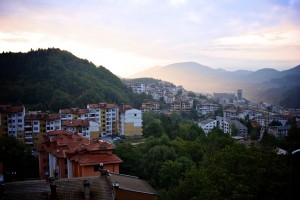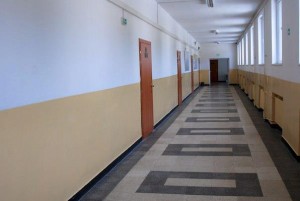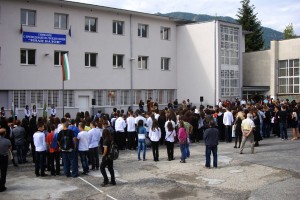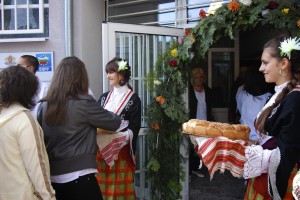This fall semester I will be studying abroad in Brussels, Belgium. Part of the reason why I chose Brussels is the hybrid program CIEE offers students. Students take 2 classes with other study abroad students and 2 classes directly enrolled in the university. I was also able to get a homestay [without even knowing French or Dutch!]. The coolest part of the program is guidance in securing an internship for the semester – they still say it is competitive, and that they cannot guarantee anyone will hire you, but they give a list of possible internship places, of which you can apply to 3.
Applying to non-summer internships was new for me, but I approached the internship search the same: I looked through all the descriptions of the companies and internship positions before choosing which 3 companies I wanted to apply to. I wanted to try working in a new environment, one where I could really see my economics lessons in real life. The companies ere all international, however I still checked out websites that spoke to the business culture of Europe.
Also, all 3 internships are in the private sector, a sphere I have no experience in it. Though my experience is all in the public sector, I connected experiences and situations I’ve had to deal with at the office to the skills the companies wanted. For example, I used my extensive work experience to show I can learn new applications/programs quickly. Also, my experience on teams [sports, political campaigns, on-campus clubs] helped to show that I understand group dynamics. So, even though I had no real experience in the finance, public relations, or marketing fields, I still found that I had the skills required to be applicable for the job.
A week after sending my applications out, I received an email from one company who wanted to interview with me. I was extremely nervous [I had never had an interview for an office abroad before] but I, again, approached it like domestic interviews. [Skype interviews are great too, you can wear a blazer and shirt with slippers and gym shorts]. The interview was with 2 people working at the company, and they asked the nonspecific questions I have gotten before. I was nervous I wouldn’t be as competitive as others with degrees in business and experience in business, so to compensate I prepared extensively by researching the company’s history, clients, management structure, current projects, etc. During the interview I felt confident when they asked me how much I knew about the company, what I could see myself doing there, why I was interested in the company, and what skills prepared me for it. Though sometimes the video and audio recording was off, the 40-minute interview went smoothly. And…
I found out today that I got the internship! I’m excited to be taking a chance and seeing what it’s like to work in the private sector, in Europe, for a full semester, doing something totally different than what most people with my major do!
Is there anything you’re going to do that’s new/exciting this semester? Any position that, though is completely different than the track you’re on, sound cool?




